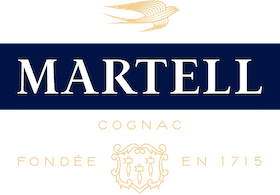Hands off! New approaches to sustainable viticulture

Greater resilience, lower impact
When it comes to sustainable viticulture, a more hands-off approach can work wonders.
Maison Martell is set to find out. In the Charente region and Cognac region, the famous grande cognac house is trialling a regenerative agriculture program that promises to create greater crop resilience with lower environmental impact.
Launched in 2021, the sustainable viticulture approach is being tested on Domaines Jean Martell’s three estates, focusing on the key areas of soil life, vine nutrition and health, and the environment and landscape biodiversity.
The program touches all corners of the estate, with Maison Martell analysing about 15 soil profiles to study their microbiology. Martell has also seeded a variety of plant cover, from perennial plants such as clover, to protein crops and grasses. The results will be closely studied, including any impacts on the wines produced.

At the same time, Martell is turning to robot technology for a helping hand. In recent months, a self-propelled weeding machine known as Bakus has been deployed to do some of the most challenging tasks in grape cultivation.
Since 2015, Domaines Jean Martell has initiated a transition towards a biosolutions-based protection program in the Charente and Cognac regions.
Since 2021, this approach has been shared with all our winemaking partners in these regions and replicated by some willing partners.
These efforts contributed towards 100 percent of Martell’s vineyards receiving dual certification for Sustainable Viticulture and High Environmental Value in 2018, with Martell adopting a zero herbicide commitment the following year.

Martell’s sustainability initiatives extend beyond the land itself, engaging local winegrowers through education and training on sustainable best practices. The purpose is to share lessons, experience and expertise in sustainable viticulture.
Please do not share with anyone under 18. Drink responsibly.














